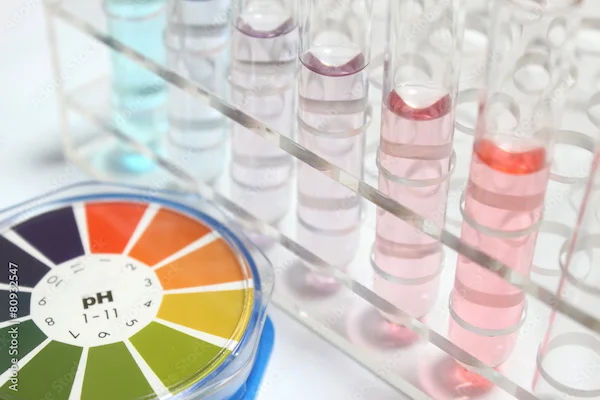All You Need To Know About Blood Types!
Discover the different blood types, their importance for health, and how they impact blood transfusions and compatibility. Learn about the ABO and Rh systems and why knowing your blood type matters.

Written by Dr.Sonia Bhatt
Last updated on 3rd Jul, 2025
.webp?tr=q-80,f-webp,w-350,dpr-2,c-at_max 700w)
Introduction
A blood type is a classification system that helps healthcare providers determine whether your blood is compatible or incompatible with someone else’s. There are four main blood types: A, B, AB, and O. Blood bank specialists determine your blood type by checking for antigen A or B on your red blood cells. They also look for a protein called the Rh factor, classifying your blood type as positive (+) if you have this protein and negative (-) if you don’t. In this article, we will explore everything you need to know about blood types.
What are the Different Blood Types?
There are eight blood types in the ABO and Rh blood group systems: A positive (A+), A negative (A-), B positive (B+), B negative (B-), AB positive (AB+), AB negative (AB-), O positive (O+), and O negative (O-).
The most common blood type in the United States is O positive (O+), while the least common is AB negative (AB-).
Rare blood types Beyond the ABO system, over 600 antigens may attach to red blood cells. There are more than 30 different blood group systems associated with these unique antigens. Other blood group systems include the:
Duffy blood group
K antigen (or Kell) group
Lutheran blood group
Kidd blood group
These blood groups are considered rare. A rare blood type is typically one that occurs in fewer than 1 in 1,000 people.
One of the world’s rarest blood types is Rh-null, with fewer than 50 people worldwide possessing this blood type. It’s so rare, it is sometimes referred to as “golden blood.”
The ABO Blood Group System
The ABO blood group system is a critical classification method used to determine blood compatibility, based on the presence or absence of specific antigens on the surface of red blood cells.
1. Classification of Blood Groups: A, B, AB, and O
The ABO blood group system is one of the most important classifications used to determine blood compatibility. In this system, blood is classified into four main groups:
Group A: This blood type has A antigens on the surface of the red blood cells and anti-B antibodies in the plasma.
Group B: This blood type has B antigens on the surface of the red blood cells and anti-A antibodies in the plasma.
Group AB: This blood type has both A and B antigens on the red blood cells and no anti-A or anti-B antibodies in the plasma. It is known as the universal plasma donor.
Group O: This blood type has no A or B antigens on the red blood cells but has both anti-A and anti-B antibodies in the plasma. It is known as the universal blood donor for red blood cells.
2. Antigens and Antibodies in the ABO System
The ABO blood group system is based on the presence or absence of specific antigens on the surface of red blood cells. These antigens are proteins or sugars that the immune system can recognise.
Antigens: These are molecules found on the surface of red blood cells. In the ABO system, the A antigen is found on type A blood, and the B antigen is found on type B blood. AB blood has both antigens, and O blood has neither.
Antibodies: These are proteins in the plasma that react with antigens not present on the red blood cells. For example, people with type A blood produce anti-B antibodies, while people with type B blood produce anti-A antibodies. Type AB individuals do not have either antibody, and type O individuals have both anti-A and anti-B antibodies.
The Rh Factor
The Rh factor is an inherited protein found on the surface of red blood cells, which plays a crucial role in blood compatibility, especially during blood transfusions and pregnancy.
1. Explanation of Rh Positive and Negative
The Rh factor is another important protein found on the surface of red blood cells. It is separate from the ABO system but plays a crucial role in blood compatibility. If the Rh factor is present on the red blood cells, the blood type is classified as Rh positive (Rh+). If the Rh factor is absent, the blood type is Rh negative (Rh-).
Rh Positive: People with Rh+ blood have the Rh factor present on their red blood cells. The majority of people in most populations are Rh positive.
Rh Negative: People with Rh- blood do not have the Rh factor on their red blood cells. Rh negative blood is less common than Rh positive blood.
2. Rh Factor's Impact on Blood Transfusion
The Rh factor can significantly impact blood transfusions, especially if the Rh factor of the donor and recipient do not match. If an Rh-negative person receives Rh-positive blood, their immune system may recognise the Rh factor as foreign and create antibodies against it. This can lead to a serious immune response and complications in future transfusions.
Rh Compatibility in Transfusions: It is essential to match both the ABO blood group and the Rh factor when performing a blood transfusion. An Rh-negative person should receive only Rh-negative blood, and an Rh-positive person can receive either Rh-positive or Rh-negative blood.
Rh Factor in Pregnancy: The Rh factor is also important during pregnancy. If an Rh-negative mother is carrying an Rh-positive baby, there is a risk that the mother’s immune system may attack the baby’s red blood cells, a condition known as Rh incompatibility. This can cause haemolytic disease of the newborn (HDN). To prevent this, Rh-negative mothers may receive an injection of Rh immunoglobulin (RhIg) during pregnancy to prevent the development of antibodies against Rh-positive blood cells.
Blood Type Compatibility
When donating or receiving blood, compatibility is essential to prevent the immune system from attacking foreign blood cells. Your blood type determines which types you can safely receive and donate to.
1. Blood Type Compatibility:
A+: Can receive A+, A-, O+, O-; can donate to A+, AB+
A-: Can receive A-, O-; can donate to A-, A+, AB-, AB+
B+: Can receive B+, B-, O+, O-; can donate to B+, AB+
B-: Can receive B-, O-; can donate to B-, B+, AB+, AB-
AB+: Can receive all blood types (universal recipient); can donate to AB+
AB-: Can receive AB-, A-, B-, O-; can donate to AB-, AB+
O+: Can receive O+, O-; can donate to O+, A+, B+, AB+
O-: Can only receive O-; can donate to all blood types (universal donor)
2. Universal Donor: O- is the universal donor, as it lacks antigens that other blood types recognise.
3. Universal Recipient: AB+ is the universal recipient, able to accept blood from any type without triggering an immune response.
Blood Types and Health Implications
Your blood type can have important implications for your health, influencing not only blood transfusions but also your susceptibility to certain diseases and conditions.
Blood Transfusions: One of the most critical aspects of blood types is their compatibility in transfusions. Receiving blood from an incompatible donor can lead to severe immune reactions, which may be life-threatening. It is essential for healthcare providers to match blood types correctly to ensure safe transfusions.
Pregnancy and the Rh Factor: The Rh factor can also play a role in pregnancy. If an Rh-negative mother carries an Rh-positive baby, it can lead to Rh incompatibility, which may cause the mother’s immune system to attack the baby's red blood cells. This condition, known as Rh disease, can be prevented with medical intervention, such as receiving the RhoGAM injection.
Increased Risk of Certain Diseases: Studies have suggested that different blood types may be more or less susceptible to certain health conditions. For example, people with blood type O might have a lower risk of heart disease but could be more prone to peptic ulcers. On the other hand, individuals with blood type A might have an increased risk of developing certain types of cancer.
Infections: Blood type may also influence how the body responds to infections. Some research suggests that people with blood type O may be less susceptible to certain viral infections, while others with blood type A may have a higher risk.
Platelet Function: Blood type can affect how platelets function, which plays a role in blood clotting. Some blood types may have a higher or lower tendency to form blood clots, which can influence the risk of conditions like deep vein thrombosis or stroke.
Conclusion
In conclusion, understanding blood types is crucial for both medical procedures and overall health. The ABO and Rh systems help determine blood compatibility, ensuring safe blood transfusions and pregnancies. Beyond transfusions, blood types may also impact susceptibility to certain diseases and conditions. While blood type is not the only factor influencing health, its role in immune responses, disease risks, and even platelet function underscores its importance. Being aware of your blood type can help you make informed decisions about your health and medical care.
Consult Top General Physicians
Consult Top General Physicians

Dr. Lakshmi Sindhura Kakani
General Physician/ Internal Medicine Specialist
10 Years • MBBS, MD (General medicine)
Visakhapatnam
Apollo 24|7 Clinic - Andhra Pradesh, Visakhapatnam

Dr. Swathi Reddy Perugu
General Physician/ Internal Medicine Specialist
7 Years • MBBS, MD (General Medicine)
Hyderabad
Health plus, Hyderabad

Dr. Mira Govindarajan
General Physician/ Internal Medicine Specialist
24 Years • MD., MHA
Chennai
Apollo Medical Centre Kotturpuram, Chennai

Dr. Jagadeesh C
General Physician/ Internal Medicine Specialist
20 Years • MBBS, MD, FRCP, FCCP
Chennai
Apollo Hospitals Greams Road, Chennai
(100+ Patients)
Dr Anand Jat
General Physician/ Internal Medicine Specialist
8 Years • MBBS, MD Medicine
Bhopal
Apollo Sage Hospitals, Bhopal


.webp)

